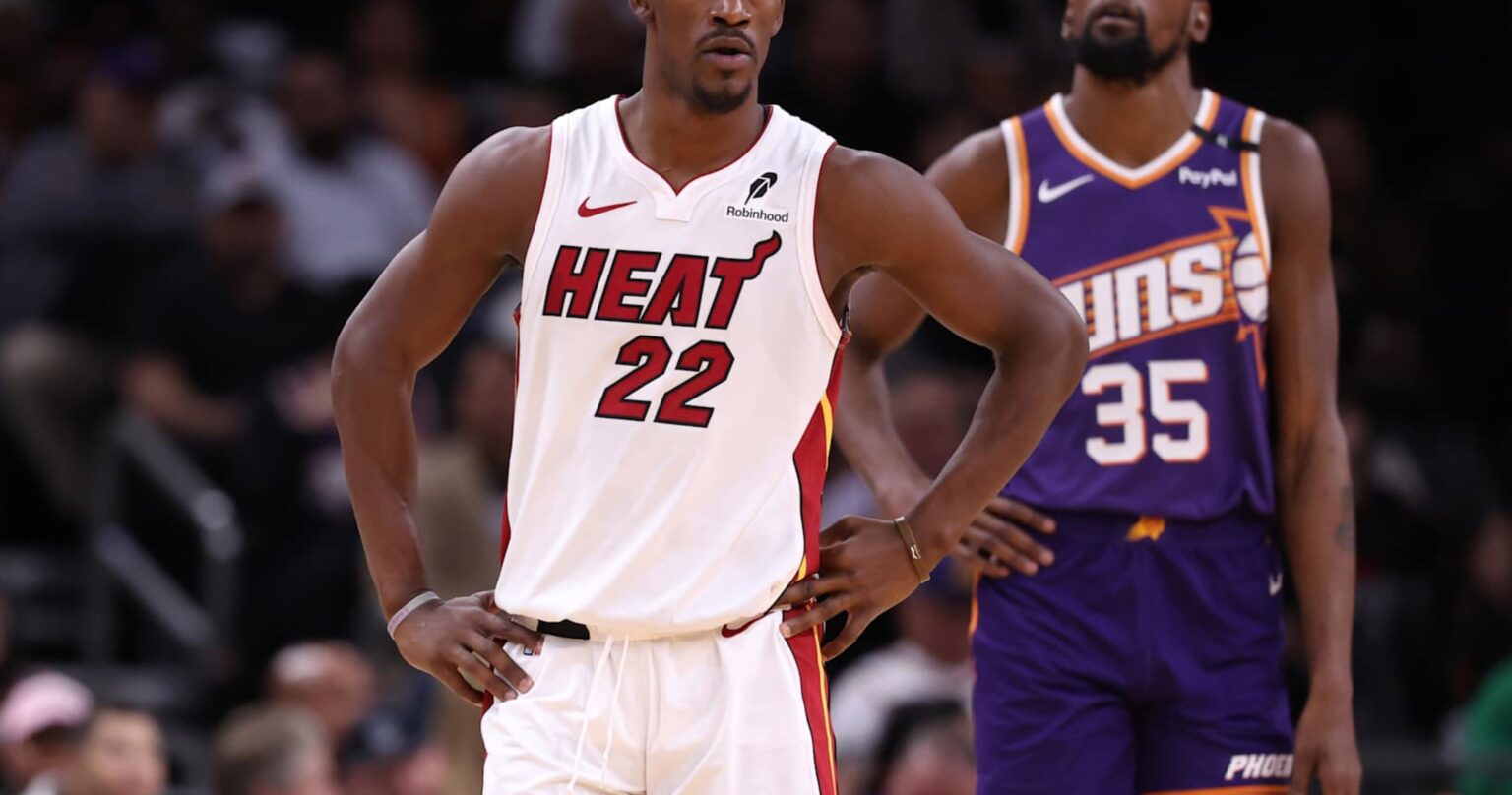Ezra Shaw/Getty Images
Detroit Pistons Receive: Josh Richardson, Lindy Waters III
Golden State Warriors Receive: Jimmy Butler (signing two-year, $111 million extension)
Miami Heat Receive: Kyle Anderson, P.J. Tucker, Andrew Wiggins, Golden State’s 2025 first-round (top-10 protection through 2027)
Utah Jazz Receive: Dennis Schröder, 2031 second-round pick (less favorable of Miami and Indiana, via Miami)
Richardson has not played since Nov. 18 while dealing with a right heel injury, and it’s not clear whether he’ll stick in Detroit. But Waters can be a legitimately useful shooter who delivers some on-ball shake in space.
The Pistons must create roster spots to make this work. And through the power of the room exception and minimum exceptions, they can add both Richardson and Waters as well as the recently acquired K.J. Martin without chiseling into their $14 million in cap space.
This is a modest price to pay for a power wing who still has that superstar gear. Anderson’s contract has devolved into slight net-negative territory, and Schröder’s fit has been far from seamless since coming over from Brooklyn. Wiggins is having a solid year and has become a more bankable floor-spacer than Butler, but Jimmy has him beat as a self-creator and table-setter and, arguably, defender.
Getting someone who can capably run the offense when Stephen Curry sits is a monster deal. Golden State may need Butler to take more threes or flesh lineups featuring him and Draymond Green with specific personnel. Steph’s off-ball gravity makes all full-strength looks tenable. And Butler’s on-ball rim pressure is an element the Dubs offense has enjoyed only during Jonathan Kuminga’s hottest stretches.
By the way: So much for Butler not wanting to be in—or sign an extension with—Golden State. Bankrolling a max deal that runs through his age-37 season is risky. But the length aligns with current contracts for Steph and Dray, Peak Butler remains someone who can elevate the Warriors to fringe contention, and equally critical, if things go belly up, the organization hasn’t depleted its asset stash.
Miami needed the Butler saga to end without overly compromising this season or its future. This trade largely accomplishes that. Wiggins is more plug-and-play than ever and should be a boost to both the Heat’s perimeter defense and half-court floor balance. The latter, in particular, is huge as they lean into the Bam Adebayo-Kel’el Ware frontcourt.
Punting on Schröder makes sense with Tyler Herro and Terry Rozier in tow, though surrendering a 2031 second to do it is bleck adjacent. Who knows what 39-year-old P.J. Tucker has left in the tank, but he comes off the books this summer. It sounds like Miami is also trying to reroute Anderson and the $9.2 million he’s guaranteed in 2025-26. That would open up additional flexibility this offseason, and moving him may prove essential if they want to duck this year’s tax.
That first-round pick from Golden State isn’t course-altering. Under the circumstances, though, the Heat are lucky to get a first at all. And it’ll come handy if they make the playoffs and convey their own pick to Oklahoma City.
Utah is pretty much facilitating every trade these days. This helping hand makes loads of sense.
The Jazz could use an experienced ball-handler to help initiate their offense. Keyonte George, Jordan Clarkson and even Collin Sexton are all varying degrees of overtaxed in that role, and it stands to reason at least one of the former two will be on the move now.
Even if Schröder is merely a rental, he can help streamline development of others in the interim. And Utah is getting a yet-to-be-disclosed 2031 pick for taking on a player it may actually use.
Read the full article here


